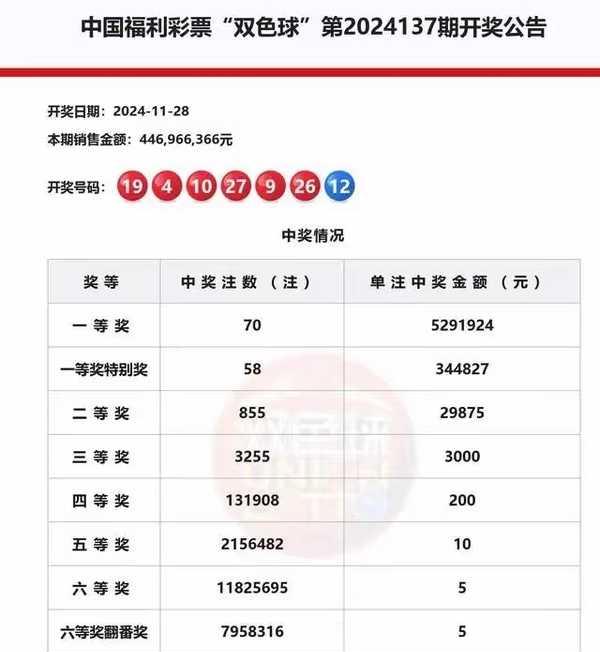The Probability and Social Impact of China's Lottery Jackpot Win
A Shenzhen man recently won 225 million yuan (approximately $31.5 million USD) from an 80-yuan lottery ticket in China. This windfall highlights both the astronomical odds of winning and raises questions about responsible lottery participation and wealth management.

The recent lottery jackpot win in Shenzhen, China has captured widespread public attention and sparked discussions about lottery odds and responsible gaming. The winner, a middle-aged man who had been buying lottery tickets at the same store for several years, invested just 80 yuan (approximately $11 USD) and won an astounding 225 million yuan prize.
From a mathematical perspective, the odds of winning the top prize in China’s Double Color Ball lottery are exceedingly rare. The game requires matching six red balls from numbers 1-33 and one blue ball from numbers 1-16. The probability of winning the jackpot is approximately 1 in 17.7 million. To put this in perspective, these odds are far lower than being struck by lightning or becoming a movie star.
Despite such astronomical odds, lottery ticket sales remain robust in China. The case in Shenzhen illustrates why - the transformative potential of a relatively small investment capturing public imagination. However, lottery experts and financial advisors emphasize the importance of responsible participation. They recommend viewing lottery purchases as entertainment or charitable contributions rather than investment strategies.
For those who do win substantial prizes, financial planning becomes crucial. Wealth management professionals suggest a balanced approach: securing a portion in safe investments like government bonds or high-rated bank deposits, diversifying investments across different asset classes, and maintaining financial privacy. The sudden influx of wealth can be overwhelming, making professional financial and psychological counseling valuable resources for winners.
The social impact of major lottery wins extends beyond individual winners. The Chinese government channels lottery revenues into public welfare projects, funding initiatives in education, healthcare, and social services. In this context, reasonable lottery participation serves a dual purpose - offering participants entertainment while contributing to social causes.
The store owner where the winning ticket was purchased, Mr. Luo, noted the winner’s previous preference for different lottery games, making this jackpot win even more remarkable. The case has reignited discussions about luck, probability, and responsible gaming in China’s lottery system.
This story serves as both a fascinating statistical anomaly and a reminder of the importance of maintaining perspective when participating in lotteries. While the allure of instant wealth is powerful, understanding the odds and approaching lottery participation with moderation remains essential for the general public.
These massive jackpots also shine a light on China’s broader lottery system, which operates under strict government oversight to ensure fairness and support public welfare. The system emphasizes responsible gaming through various measures, including prominent warnings about rational participation and age restrictions.
The Shenzhen winner’s story ultimately exemplifies the delicate balance between dream and reality in lottery participation. While such wins are possible, they represent extremely rare events that should not overshadow the importance of financial responsibility and realistic life planning.